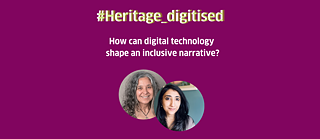Conversation with Adriana Muñoz
How can digital technology shape an inclusive narrative?
Adriana Muñoz and Medhavi Gandhi
Museums, Libraries, Archives use standardized terminology to group and describe collections. One such universally recognized vocabulary is the "Library of Congress Subject Headings (LCSH)". Often, the terminology contained within vocabularies like LCSH reflect a largely white, heterosexual, cisgender, male perspective. Further, the terminology to describe marginalized communities, has been developed by those outside of the marginalized community, resulting in a biased description. The continued use of these outdated terminologies today continues to perpetuate bias and further ignorance.
Metadata is about meaning and must change with societal norms in a respectful and inclusive manner. As user-needs change, as vocabulary & language undergoes change, metadata too, needs to adapt to stay relevant.
The information in museum collections represents only one voice - the voice of the collector. And often museums face challenges in bringing in other diverse voices.
Dr. Adriana Muñoz, Curator, National Museum of World Cultures, Sweden.
Today museums in Europe are increasingly using participatory approaches and collaborations to seek contextual information about their colonial collections. Technology surely places an important role (image — Wikipedia, WhatsApp, Instagram) in this. But what is most crucial is creating safe spaces for communities to facilitate a sharing of deep experiences and honest expressions, says Adriana Muñoz.
“In rethinking labels, museums have to lose control, and un-learn. It is not only about training the current / future generation of curators — it is about being aware what is going on in the world, when it comes to human rights.”
Watch the video to find out more about museums approaches to make collections and metadata more inclusive.
